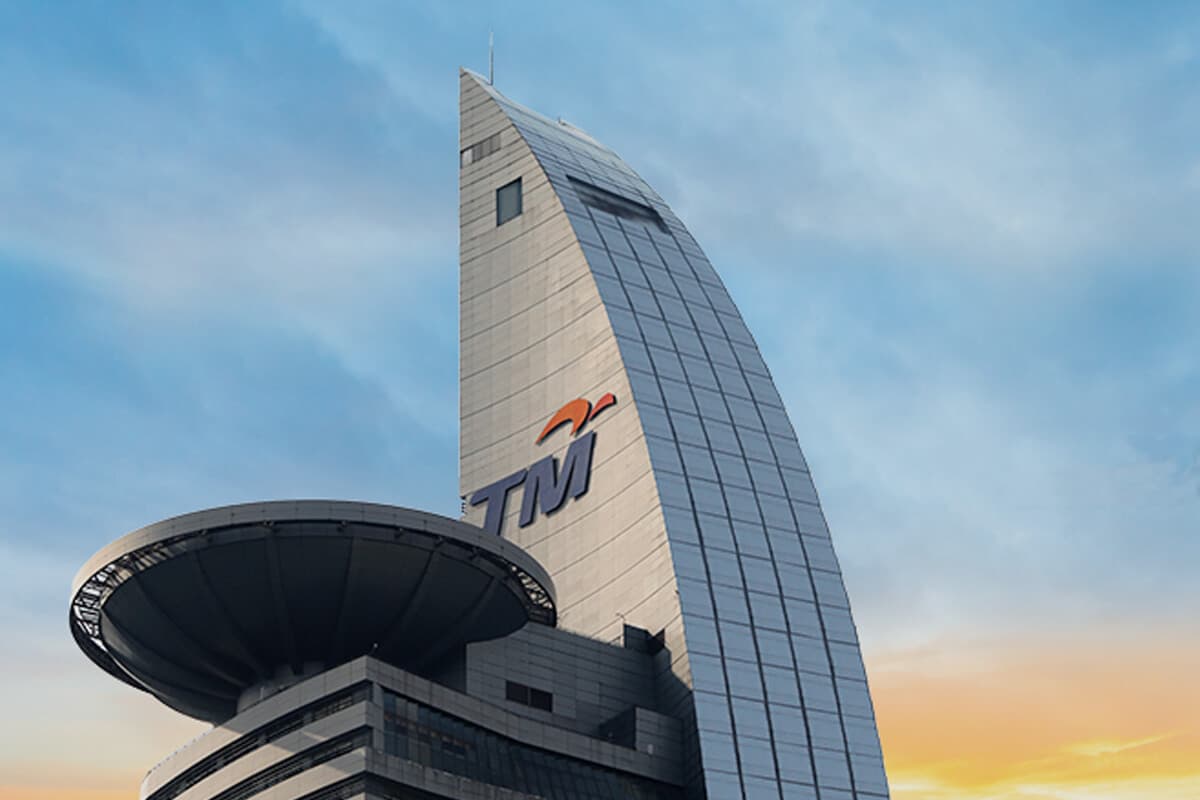
KUALA LUMPUR (May 10): A week after CelcomDigi Bhd announced it was pulling out from participating in the equity of Digital Nasional Bhd (DNB), Telekom Malaysia Bhd (TM) has announced that it has terminated the share subscription agreement (SSA) with DNB effective immediately.
The termination of the agreements came after Communication and Digital Minister Fahmi Fadzil announced on Wednesday (May 3) that the government has decided to tweak the 5G single wholesale network (SWN) model and allow a second 5G wholesale network to be established once DNB achieves 80% coverage of the populated areas by the end of this year, citing risks of single point of failure as among the main reasons.
“TM hereby announces that the longstop date to fulfil all CPs [condition precedents] under the SSA has lapsed. Consequently, pursuant to the terms of the SSA, TM has on May 10, 2023, issued a termination notice to DNB to be effective immediately,” the group said in a stock exchange filing on Wednesday (May 10).
Despite the termination of SSA, TM has assured that its customers will continue to enjoy 5G services and solutions, as the 5G wholesale access agreement with DNB remains intact.
TM added that the termination of the SSA is not expected to have any significant effect on the group’s earnings, net assets and gearing for the financial year ending Dec 31, 2023 (FY2023).
Last October, TM along with other mobile network operators CelcomDigi — the merged entity of Celcom Axiata Bhd and DiGi.Com Bhd — and YTL Communications Sdn Bhd announced that they will collectively take up 65% stake in DNB while their two peers Maxis Bhd and U Mobile Sdn Bhd opted out.
DNB is a special-purpose vehicle owned by the Ministry of Finance.
Last week, Fahmi pointed out that upon reaching 80% coverage of the populated areas (COPA) by-end 2023, the rollout will shift to a “Phase 2” where the nation will move to a dual wholesale network (DWN) model.
Under the DWN shift, a separate entity, which Fahmi merely dubbed as an unidentified “Entity B”, will start developing the nation’s second 5G spectrum network as early as January 2024.
“This decision was made with a shift in focus to elements of adoption and innovation based on comprehensive 5G technology,” the minister said, adding that the model also takes into account the sustainability of the telco industry in Malaysia, thus ending the monopoly element that is often associated with DNB.
In a recent interview with Bernama TV, The Malaysian Communications and Multimedia Commission’s (MCMC) chief operating officer Datuk Mohd Ali Hanafiah Mohd Yunus confirmed that DNB would be privatized once it achieves the 80% COPA.
Another entity would then be formed to establish and develop the second 5G network, said Ali Hanafiah during the interview.
Telecommunications companies have welcomed the government’s decision to implement the 5G under the DWN model.
After the green light was given for a second 5G network operator, it is interesting to see which 5G vendor will the Malaysian government pick. Ericsson, Nokia, Huawei, ZTE and Samsung are among the major 5G vendors supplier.
Early May, Reuters reported that the European Union (EU) and US have warned Malaysia about risks to national security and foreign investment should Huawei win its bid for the 5G contract.
Sweden's Ericsson is currently the sole 5G vendor appointed by DNB. The total cost of 5G rollout is RM16.5 billion over a 10-year period, comprising RM12.5 billion for the network equipment and infrastructure and RM4 billion in corporate costs.
Shares in TM closed down two sen or 0.39% to RM5.12, giving the group a market capitalisation of RM19.57 billion.